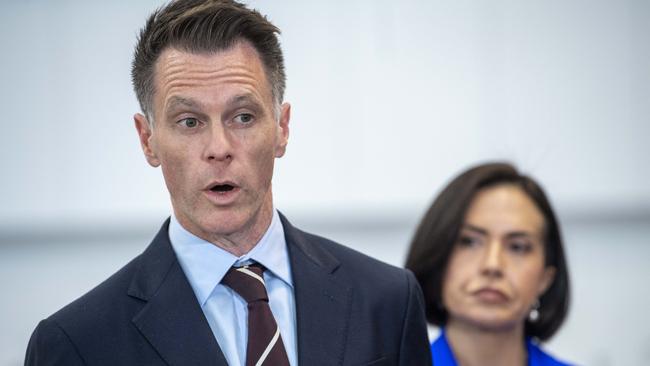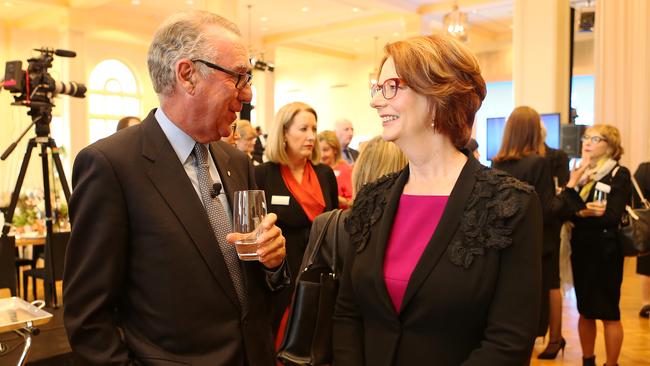
Curriculum reform and a return to direct instruction (DI), as flagged by NSW Education Minister Pru Car on July 24, are exactly what this newspaper has been calling for since 2002.
The Minns Labor government has effectively renovated the 2022 national curriculum with syllabus changes in Personal Development, Health and Physical Education, Creative Arts, Human Society, and Environment and Science and Technology, with the overhaul to be introduced in 2027. New maths and English syllabuses are already in use.
The new HSIE syllabus includes compulsory civics and citizenship, and an increased focus on geography including map reading and Australian history that includes the First Fleet and progress towards Federation, as well as Aboriginal perspectives. The physical education syllabus will include messages about the healthy use of devices such as phones and tablets.
All this will come with a new focus on DI and “more clarity for teachers on what all students need to learn, with more detailed and specific content”, the NSW government says.
The Australian’s education editor, Natasha Bita, summed it up in Inquirer on July 27: the new curriculum “is a clear and concise document that focuses on phonics and facts, erasing the … feel-good theories that still clutter curriculum documents across the nation”.
Simple examples to prove DI works? Think of the success Cape York leader Noel Pearson has had with his Good To Great Schools program in Queensland, despite the opposition of small-minded education bureaucrats. Or reflect on the explicit instruction methods still used by special needs teachers.
Reflect on your own schooling in foreign languages. Would French, German or Japanese have been possible without explicit learning and rote memorisation?
It’s one of the great ironies of education and the reporting of it that left-wing teachers and journalists championing student-led learning methods of the past few decades have effectively been ignoring the needs of precisely those students who need most help while privileging those bright students who can drive their own learning experiences.
That is, in the name of progressive change, educators have been imposing on schools regressive, anti-learning policies that inflict the most damage on lower-achieving children.
This column on September 2, 2019, used a series of quotes by educators and education ministers to show how and why our schools got to this position.
Former Victorian premier and before that education minister, the late Joan Kirner: “Education has to be reshaped so it is part of the socialist struggle for equality.”
Former head of the Australian Education Union Pat Byrne: “We have succeeded in influencing curriculum development … conservatives have a lot of work to do to undo the progressive curriculum.”
Former Griffith University education lecturer Gregory Martin: “A major task for leftist academics is to connect education with community struggles for social justice.”
And hasn’t all that been a raging success? Government spending on school education has skyrocketed to $72bn this year under reforms including the Gonski federal changes, and yet in almost all international test results Australian students have gone backwards.
Only last June the Victorian branch of the Australian Education Union criticised the new Victorian curriculum for its return to phonics reading instruction for children up to year 2. The union told teachers to ignore it.
Yet we know from NAPLAN that a third of 15-year-old students nationally do not have the reading skills to perform adequately in year 9.

Think here class sizes, state versus private school funding, and the teacher union campaign to dismantle former Labor prime minister Julia Gillard’s NAPLAN testing regimen.
Sceptical reporters should know education research does not support class size as a determinant of success.
They should see through the teacher unions’ anti-NAPLAN campaign: it is a push on behalf of the interests of education providers against those of school students.
This column showed on March 11 this year how campaigns in the Nine papers and the ABC criticising federal funding to private schools misrepresent the system.
Centre for Independent Studies education specialist Glenn Fahey says the private system in effect reduces the taxpayer burden of funding each public student “by between $3000 and $4000 on average”.
Writers and thinktanks calling for a reversal of teaching strategies that have already been tried, failed and dumped in the US – think student-led inquiry – are called culture warriors for wanting a return to educational methods that succeed in international testing.
But the problems are broader than curriculum, DI or funding.
Teachers to whom this column speaks are concerned at the imposition by successive federal governments of cross-curriculum priority areas.
These force teachers to consider and document how they discuss Aboriginal perspectives, environmental sustainability and engagement with Asia in the subjects they teach.
Teachers also point to declining behavioural standards in classrooms and adverse effects on children from time spent on phones late on weeknights.
Education writers might be surprised to learn how many children come to school with little sleep and no breakfast. It’s an under-reported contributor to poor educational performance.
Education research is clear that good principals lead good schools.
In Australia, a rise in managerialism, much of it to do with heading off potential legal action by parents, is not helping school heads lead the way educationally.
Looking at the success of new migrant children in selective high schools may offer some pointers for reporters and education bureaucrats.
The Sydney Morning Herald in 2019 reported 83 per cent of NSW students in fully selective schools came from Language Background Other Than English families but these families were not choosing private schools, which were more likely to cater to Anglo students.
The paper quoted UTS social scientist Christina Ho saying the choice suggested LBOTE parents may be less concerned by the benefits of private schools “such as facilities and the old boy/girl network and more by academic outcomes”.
Journalists could perform a valuable service by reporting on the home backgrounds of education cohorts succeeding in Australia. What are these families doing right?
Most important of all, journalists need to look closely at the education of teachers and teacher admission standards.
Of course teachers need to be more highly valued by society.
A good place to start would be higher entry qualifications than the often low ATARs accepted now, better training before placement including more time in front of classrooms, and more mentoring in service.
Successful systems such as those in Finland and Singapore show the way forward.






Education reporters too often focus on the claims of service providers – schools and teachers – rather than the needs of children.